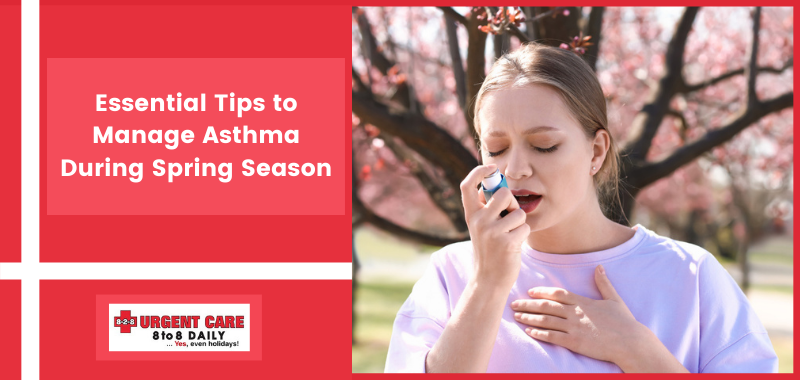


Asthma is a chronic lung disease that causes the bronchial airways to narrow and swell. This leads to extra mucus production, causing difficulty in breathing. People with asthma will experience coughing and wheezing when breathing. Asthma can be associated with either a non-allergic or an allergic reaction, and for some people, it can be a minor nuisance.
However, for others, it can be a major issue that will interfere with their daily lives, which eventually may lead to a life-threatening asthma attack. According to statistics, over 16.67 emergency hospital visits for asthma amongst children in the USA every year. This article discusses the effects of asthma and how to treat or manage it.
It is a type of allergic asthma where the symptoms are triggered by different allergens that appear at different times of the year. Asthma in the spring can be worse as the airways in the lungs often get swollen or inflamed due to such triggers. Generally, people with asthma have allergic asthma, which means that asthma is triggered by an increase in allergens present in the surroundings.
Asthma and allergies have a lot in common and often occur together. An allergic response occurs when the antibodies mistakenly identify a harmless substance like tree pollen as an invader. Therefore, the antibodies bind to the allergen to protect the body from such substances, causing the immune system to produce chemical substances.
These chemical substances can create signs and symptoms of allergic reactions, including runny nose and watery eyes. Often, this same reaction can affect the airways and lungs, leading to the development of asthma symptoms.
Though most treatments like inhaled corticosteroids, rescue inhalers, combined inhalers, etc., are developed to treat either allergies or asthma, few treatments can help with both conditions. Some of them include:
This involves getting injections regularly. The allergy shots will contain a tiny amount of allergens that trigger the symptoms. Immunotherapy can help treat asthma by gradually reducing the immune system's response to certain allergy triggers through exposure.
The immune system identifies a specific substance by mistake when you have an allergy and releases antibodies (IgE) against the allergens. These antibodies will signal the immune system to release histamine and other chemicals into the bloodstream to prevent allergic reactions that trigger asthma symptoms.
Mold spores, grass, and tree pollens can inflame and narrow the air passages of highly sensitive people during spring. A person may also be at the risk of suffering from a major asthma attack.
Different types of seasons feature irritants that trigger asthma symptoms and allergic reactions. A few easy tips and various long-term medications can help manage asthma and prevent allergic reactions.
If you’re suffering from symptoms of asthma and allergic reactions, our medical professionals at 8-2-8 Urgent Care walk-in clinic in Oceanside, CA, can provide you with the best medical treatment to manage the symptoms and prevent flare-ups. Contact us for more information or walk in to 8-2-8 Urgent Care today. We operate from 8 am to 8 pm every day of the year. Call our staff, and they will walk you through our new self-check-in process to make your visit more efficient.